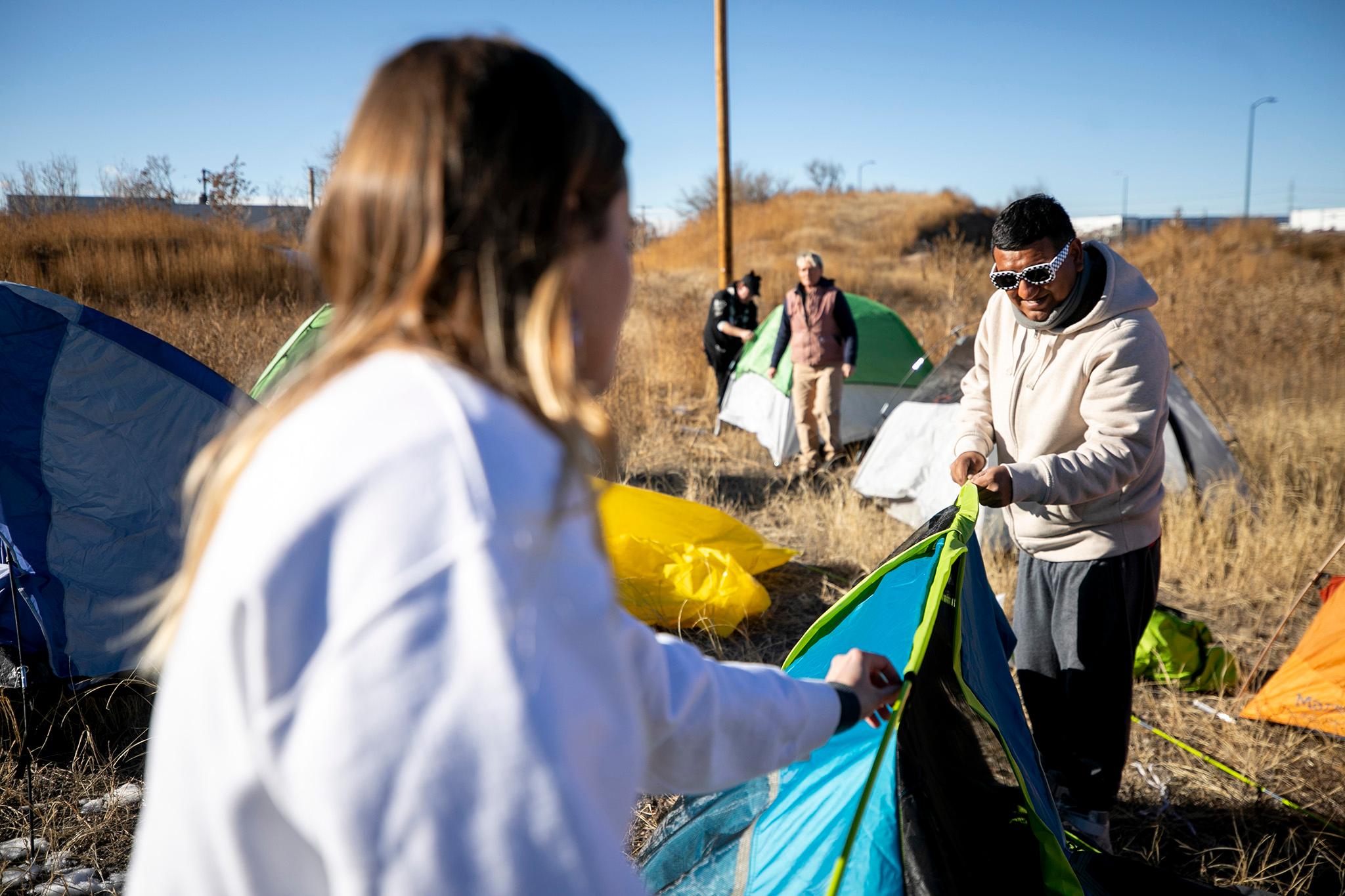For the past year and a half or so, Denverite and Colorado Public Radio have been following the stories of people arriving from the border. Many of them have traveled through multiple countries, risking their lives and well-being to get to the United States.
Since then, we've published more than 60 stories across both Denverite and CPR.org. We've also aired dozens of news items on the radio. In all of these stories, the word "migrant" has featured prominently as a blanket term for the new arrivals from the border.
On Jan. 31, Denverite, CPR and KRCC began moving away from using this term when referring to the group of recent arrivals and those who may yet be on the way. We will avoid using "migrant" in our headlines, news stories, newsletters, social media and CPR radio stories.
Instead, we will refer to the people arriving in Denver and Colorado from the border as new immigrants.
Why we made the change, and how it reflects our approach to coverage.
The term "migrant" currently carries a heavy political charge.
After so much use, without self-interrogation by the media, we feel as a newsroom that the word has lost much of the humanity behind it. It also may not accurately describe a person's reason for arriving in Colorado.

Our stories have touched on how much Denver has spent in its response to new arrivals, how city workers have responded, the politics developing around them, and how everyday people are trying to help the newcomers find their way.
But one distinguishing feature we feel sets our coverage apart is how hard we've worked to talk to the people arriving, getting a sense of their hopes and dreams, what they want to do and how they want to contribute to the U.S. We are proud of the work we've done in humanizing this newcomer population.
The term migrant 'generally refers to people who are on the move, sometimes for economic reasons, either within one country or across borders.'
That's from The Associated Press's style guide, which Denverite and CPR largely follow.
There's also an ambiguity in the AP's definition: "The term migrant also may be used for those whose reason for leaving their home country is not clear."
It's here that we see an opportunity to be flexible with our language and inject more humanity into our news coverage. The term new immigrants remains accurate when describing this population - the vast majority of the people we have met over the past year and a half say they plan to remain in the U.S., be it Denver, somewhere else in Colorado or another state.

The AP's style guide defines immigrants simply as "people who move to a different country with the intention of settling there." That's regardless of legal status.
We will strive for as much specificity as possible in our copy when describing new immigrants. For example, if we are telling the story of someone who has requested asylum, we may refer to them as an asylum seeker.
You might still read or hear the word 'migrant' in our stories or radio news coverage in certain cases.
Currently, we are not aware of any plans by National Public Radio to discontinue the use of the word "migrant," meaning that non-CPR news programming that airs on our airwaves may still contain the word.
Direct quotes from officials or anyone who is discussing the new immigrants may still include the word "migrant." The same goes for official names of programs, public funds and other efforts aimed at addressing the newcomers.
We understand that this change may raise questions, and we welcome your feedback. Feel free to email us at [email protected] or [email protected].

